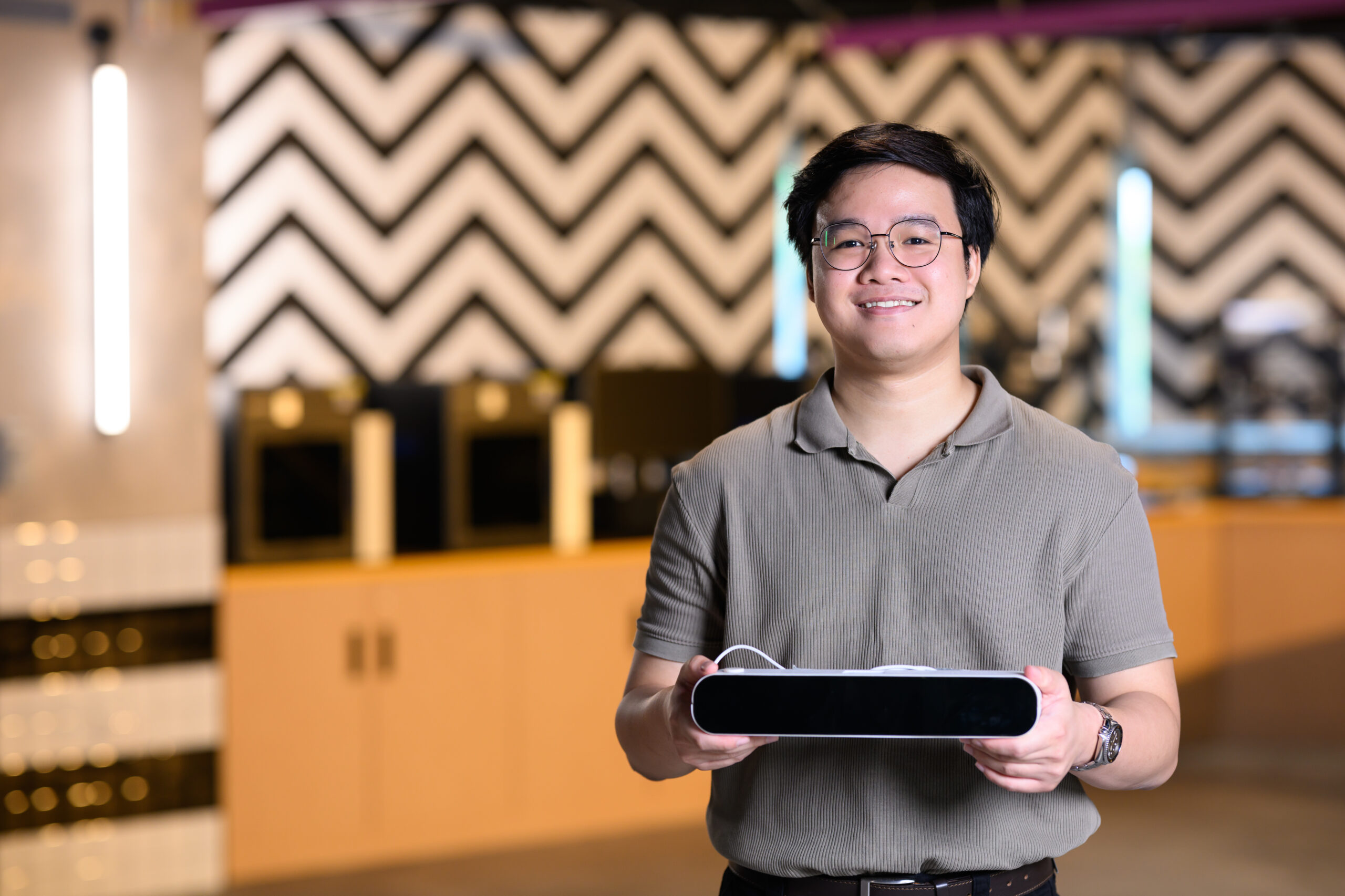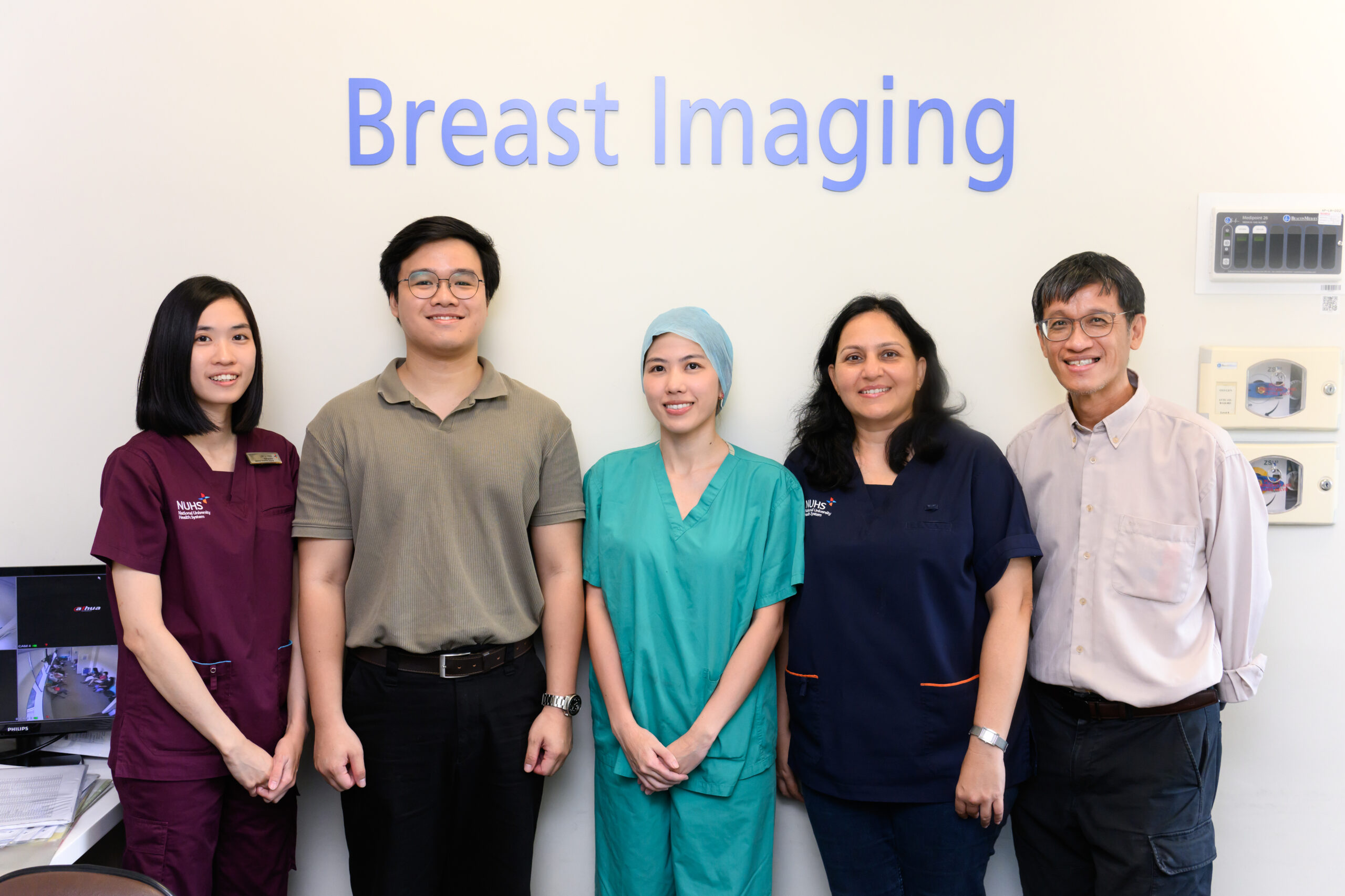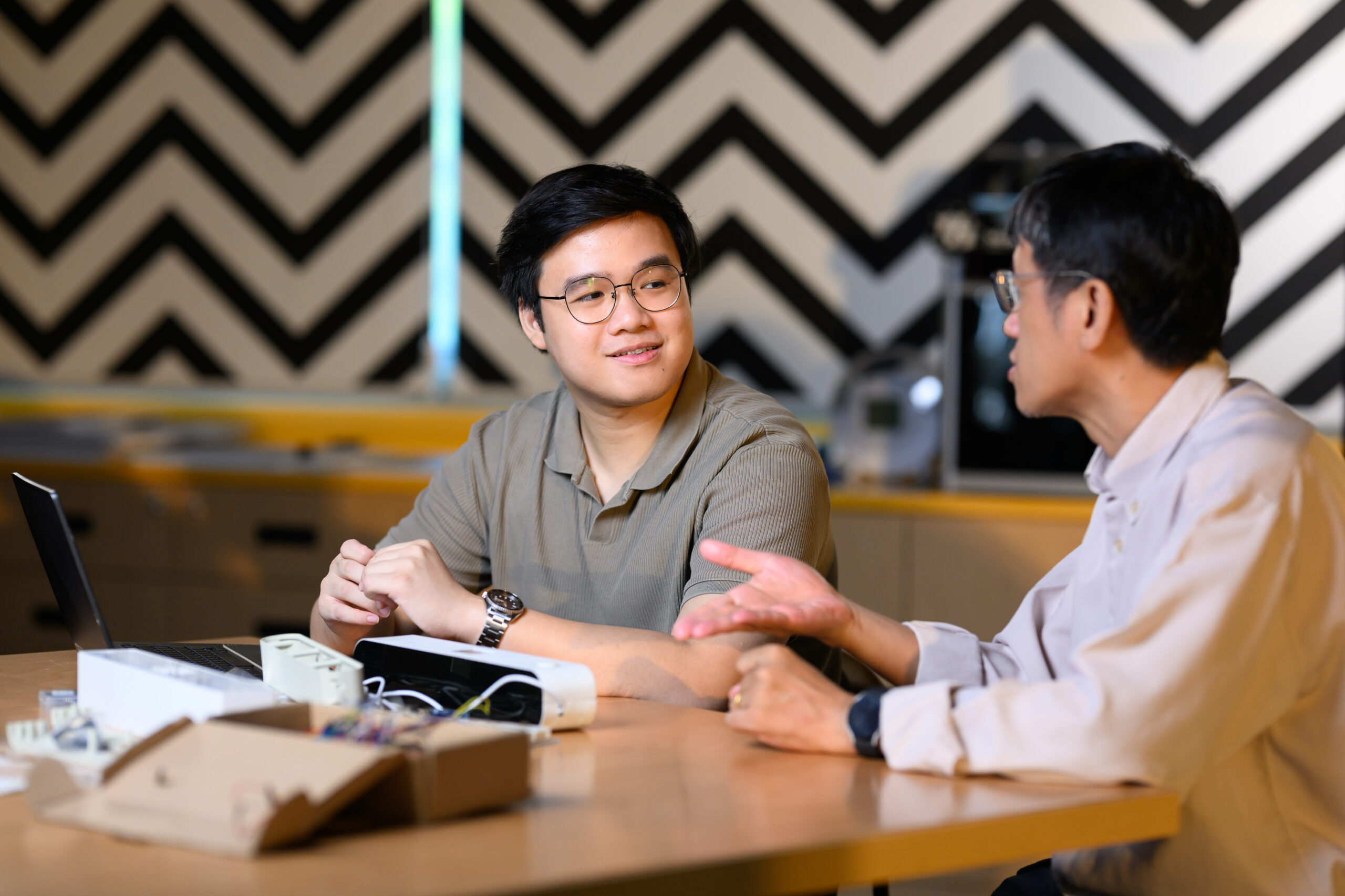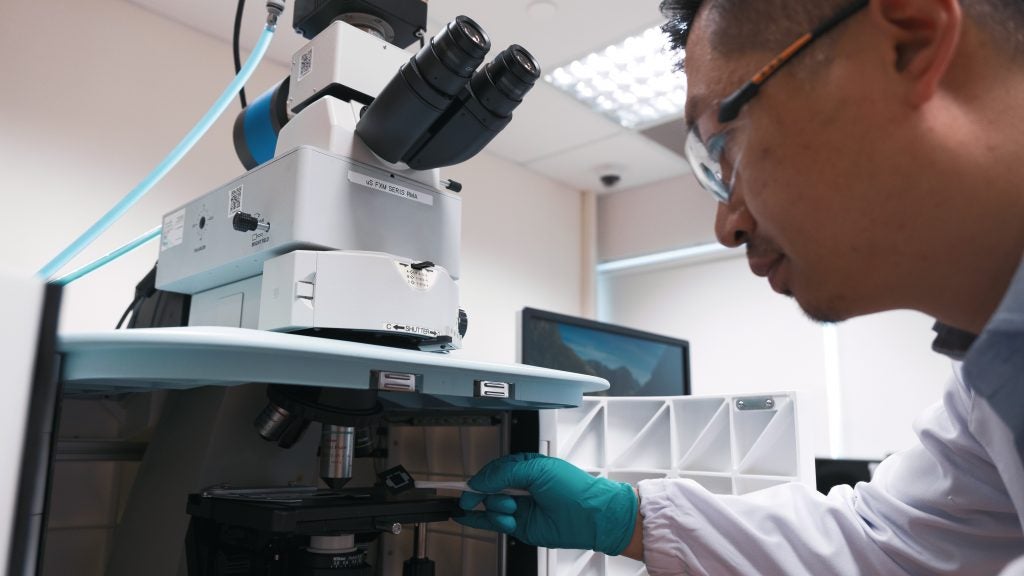
Congratulations to Luke Goh on his selection as the National Winner of the annual James Dyson Award for his thesis project, Mammosense. Driven to address his mother’s painful mammogram experience, the recent graduate from the Division of Industrial Design wanted to create a solution that could make the routine medical procedure less agonising for women everywhere.
Under the guidance of Associate Professor Yen Ching-Chiuan, Luke developed a solution that leveraged Light Detection and Ranging (LiDAR) technology to analyse the breast during mammograms and provide data-driven guidance for radiographers. Its sensors help map the breast digitally in its software, with algorithms processing the data in real time to help determine the optimal compression force required and achieve clear imaging while minimising discomfort.
The medical professionals he worked with initially doubted a solution was possible despite their own complaints regarding general mammogram procedures. Early iterations of the solution focused on creating a more comfortable interface between human and machine, but this proved challenging due to the technical limitations of X-ray equipment.
Despite the early challenges, Luke was not deterred. He tapped into his prior design experiences and focused on understanding what was truly important to medical professionals when developing his solution. One of the primary considerations was ensuring that the introduction of the solution would not hinder their workflow and would instead aid them in conducting a mammogram.

“I knew that the common experience was pain during the procedure, and it was something that influenced both radiographers and patients. Along this line, I realised that improving comfort also involved reducing pain, which directly correlates to reducing force. That was when I started questioning ‘How much was enough?’”, Luke shared.
This shift in perspective ultimately led him to develop Mammosense. Using LiDAR technology, Mammosense analyses the breast during mammograms and provides data-driven guidance for the radiographer to help determine the optimal compression force required to achieve precise imaging. With an easy-to-use user interface, Mammosense helps simplify a task that was once a subjective skill-based procedure, allowing radiographers of all experience levels to apply consistently good compression.
His mentor, Associate Professor Yen, had this to say about Luke’s accomplishments, “I’m thrilled to hear about the Dyson Award! It’s our Division’s third consecutive win for the National Winner (Singapore), and I could not be prouder. Mentoring Luke on this project has been an incredible experience, and the collaboration with Dr Serene Goh, Dr Pooja Jagmohan, and Ms Li Ying Lim from NUH has been invaluable.
Luke’s unique empathy for female patients, paired with his engineering and design expertise, led to Mammosense—a high-tech, patient-centric solution to reduce mammogram discomfort. This innovation aims to improve breast cancer detection by making mammograms less painful, addressing a key barrier many women face.
Mammosense has received international recognition for its humane approach and has caught the attention of industry leaders. We look forward to seeing its clinical adoption, enhancing patient care and quality of life.”

Early trials of Mammosense have shown that it is able to reduce around 34% of the force required to achieve a scan, with a 25% reduction in reported pain experienced during breast compression.
As part of his achievement, Luke will receive S$8,400 to develop Mammosense further. Luke is currently working on increasing the LiDAR detection resolution to improve the reliability of force recommendations and collaborating closely with local hospitals to perform larger pilot tests with patients to evaluate its effectiveness in enhancing screening experiences.
Read more about Mammosense here: DiD Gradshow 24
Project yaR
There is more cause for celebration as CDE was also represented in the National Runners-up for this year’s James Dyson Award by NUS undergraduates Sparsh (Computer Engineering) and Manas Bam (Computer Science). Sparsh and Manas co-developed yaR, a wearable pendant device that aids the visually handicapped in navigating and performing daily tasks more independently.

Activated by pressing a single button on the yaR pendant, the user asks a question, the pendant takes a picture, processes the query using AI, and responds. The device was developed in collaboration with the Singapore Association of the Visually Handicapped (SAVH), and user testing helped address critical use issues, making its use more intuitive.
Reflecting on his journey developing Project yaR, Sparsh mentions, “We learned a lot in terms of technical skills and soft skills like talking to users and team management. SAVH helped us narrow down a target group: older people who can easily use the device for tasks like distinguishing medicine labels, finding cans in the fridge, and picking colours while dressing.”
The team was mentored by Dr Jovan Tan, lecturer at the Engineering Design and Innovation Centre (EDIC). Remarking on the team’s selection as National Runners-up for the Singapore James Dyson Award, Dr Tan notes, “It's a truly inspiring experience to mentor Sparsh and Manas, two dedicated iDP students deeply passionate about societal impact. Their relentless efforts to bring solutions like yaR to the market, aiming to enhance the lives of visually impaired individuals, is a testament to their unwavering commitment.
yaR has received recognition through several awards, including the prestigious James Dyson Award, known for honouring innovative and impactful designs. These accolades signify that people recognise yaR's value and potential to significantly contribute to society's betterment.
With its immense potential, I believe the team is poised to further enhance yaR and eventually introduce it to the market. This prospect fills me with optimism, and I eagerly look forward to the day when yaR will play a pivotal role in improving the lives of many.”
Luke, as well as Sparsh and Manas, will both progress to the international stage of the James Dyson Award, where they will stand a chance to receive S$50,500.





